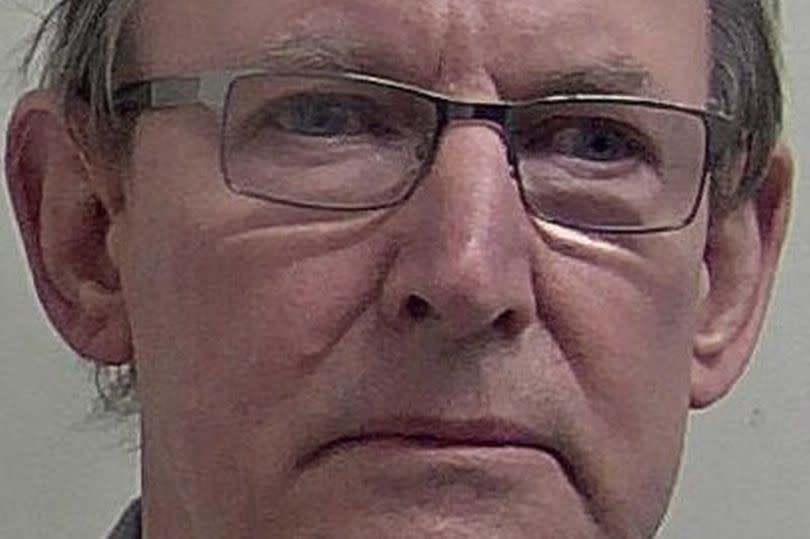Law against sexually abusing bodies to be strengthened by Government in wake of David Fuller abuse

Criminals who sexually abuse dead people will face tougher sentences under Government-backed reforms developed in the wake of necrophiliac killer David Fuller's mortuary abuse.
Justice minister Laura Farris said the Government will amend existing 2003 legislation to increase the maximum prison sentence for the sexual penetration of a body from two years to seven years.
MPs heard the changes will also create a new offence of "sexual activity with a corpse" with a maximum prison sentence of five years to cover non-penetrative offences.
READ MORE: Rapist targeted two children in 'vile' Kent sexual offences
READ MORE: Carer of Kent baby who choked to death at nursery had expired first aid certificate, inquest hears
The Government will implement the change by supporting a Criminal Justice Bill amendment initially brought forward by Conservative former ministers Greg Clark and Dame Tracey Crouch.
Fuller worked in maintenance at Kent and Sussex Hospital and the Tunbridge Wells Hospital, in Pembury, Kent, from 1989, and sexually abused the bodies of 101 women and girls in the hospital mortuaries between 2005 to 2020.
He was also convicted in 2021 of the murder of two women in separate attacks in Tunbridge Wells in 1987.
Mr Clark, speaking during report stage of the Bill, told the Commons: "All of Fuller's crimes are, frankly, unspeakable, but as well as the current sentencing limit being absurdly inadequate to deal with, in effect, the rape of dead bodies, it does not cover at all any form of sexual assault that is non-penetrative."
He added there is "clearly a gap" in the law which needs to be closed, adding: "That's what this new clause aims to do."
Mr Clark said: "Victims of Fuller were robbed of their lives and then their dignity and then the victims' families have been robbed of adequate justice."
"The devastation of the families of Fuller's victims has been heart-breaking."
"They suffered the deaths of their daughters, sisters, nieces, aunts, wives, mothers and grandmothers and then having laid them to rest and grieved for their lost lives, hundreds received a knock on the door one night from the police, who had to tell them that the body of the person who was so precious to them had been desecrated in the most sickening ways by this vile individual in a place a hospital mortuary that they thought was sacrosanct and safe and protected."
"For many they will never get over the shock and the disgust that they felt when that news was imparted to them on that evening and it stays with them even now."
Mr Clark said the police and families of the victims will never have restored to them the "peace of mind that Fuller destroyed", adding: "We can't correct that, very sadly, in this House."
"But what we can do is to ensure these offences are recognised for having the gravity they do."
Ms Farris earlier told the debate: "It is perhaps a rare thing in 2024 that an offence can be identified which Parliament has not even previously considered."
"But such was the extent of Fuller's offending, we've had to do so and the Government is pleased to confirm the Sexual Offences Act 2003 will be amended under this legislation to capture the sexual touch of a corpse, with a new maximum sentence of seven years for penetrative offences, and five for non-penetrative acts."
Dame Tracey said the changes will ensure "greater protection" in future and offer "some comfort" to the families of Fuller's victims that "justice has been thought about".
Elsewhere in the debate, the Government committed to creating a bespoke criminal offence to tackle the issue of criminals taking over a vulnerable person's home for illicit purposes known as "cuckooing".
Ms Farris said: "New clause 94 provides for a bespoke criminal offence to tackle cuckooing, this offence criminalises the control whether exercised by means of coercion or otherwise of another person's home for the purposes of using it as a base to commit specified criminal activity."
Ms Farris said the criminal activity listed under the clause includes drug offences, sex offences and offensive weapons crime but added that this is a "non-exhaustive list" and can be added to by the Secretary of State.
Intervening, Conservative former minister Sir Iain Duncan Smith said the offence will "break new ground" but added that guidance should be provided to police to ensure that homeowners are not coerced into telling them they have given consent to the criminals.
Conservative MP Caroline Nokes, who chairs the Women and Equalities Committee, tabled amendment 160 in a bid to make non-consensual intimate photographs and films "priority illegal content".
MPs heard this material would be considered illegal, platforms would have a duty to remove it and internet service providers would have to block access to non-compliant sites and platforms, including those hosted outside the UK.
Ms Nokes said: "For a woman or indeed a man who has had their intimate images put online, circulated freely, proliferated all over the place, that is like digital rape and it is a rape that continues day after day after day to be brutally honest with no end in sight."
The proposal was not pushed to a vote.
Elsewhere, the Government accepted an amendment to ensure cyclists who cause death by dangerous cycling could face up to 14 years in prison.
MPs also voted 272 to 171, majority 101, against new clause 59, which was a Labour bid to ban "ninja swords".
A Liberal Democrat proposal designed to make it an offence to fail to meet pollution performance commitment levels was defeated by 268 votes to 17, majority 251.

 Yahoo News
Yahoo News 
